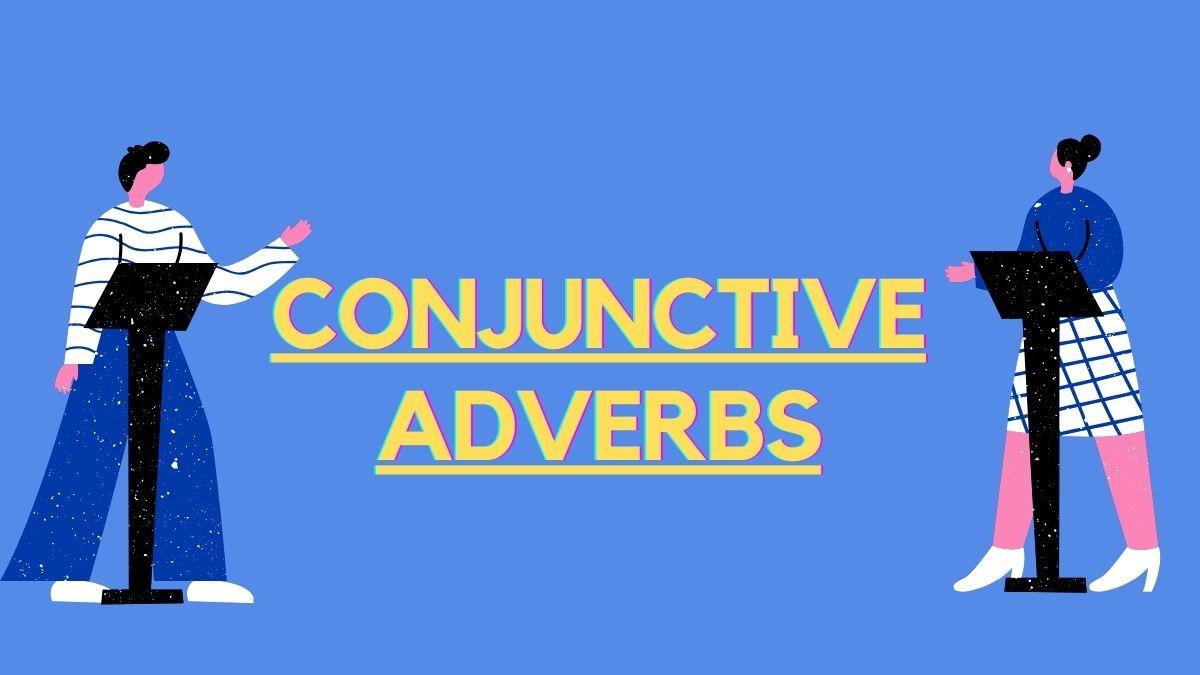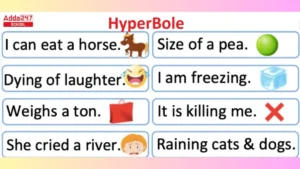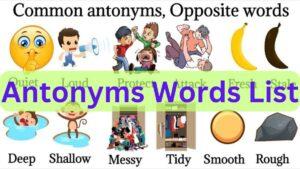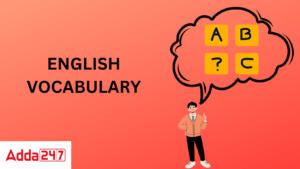Table of Contents
Conjunctive adverbs are the major types of adverbs that are often used in the English language. But have you ever come across the term ‘conjunctive adverb’? Are you familiar with their meaning or their function? Conjunctive adverb act as conjunctions in a sentence. In this article, you can discover everything there is to know about conjunctive adverbs, including their definition, usage rules, along with examples. You will also get to solve some questions on this topic.
Conjunctive Adverbs
A conjunctive adverb is an adverb that also functions as a conjunction. It has the ability to connect various clauses or sentences in order to demonstrate cause and effect, sequence, or contrast between them. Transition words such as however or also, known as conjunctive adverb, are used to link independent clauses or sentences by indicating their relationship. Conjunctive adverb helps transition between two clauses, but they cannot solely connect two independent clauses like coordinating conjunctions can.
Conjunctive Adverbs Definition
Check the definition of Conjunctive adverb according to some best dictionaries in the world below.
The word ‘conjunctive’, according to the Merriam-Webster Dictionary, is defined as something that is “being or functioning like a conjunction.” The Merriam-Webster Dictionary defines the quality of a part of speech being ‘conjunctive’ as “relating to a conjunction (=linking word), or expressing a link between two things that are both true.”
According to the Collins Dictionary, a conjunctive adverb is defined as “serving to connect two clauses or sentences, as furthermore and however.”
Conjunctive Adverb Examples
Conjunctive adverbs play a crucial role in communication by connecting ideas seamlessly. If not for them, the reader would have a harder time understanding due to sudden changes in topics between sentences and clauses. Check the famous examples of these adverbs below.
- also
- however
- otherwise
- consequently
- indeed
- similarly
- finally
- likewise
- then
- furthermore
- moreover
- therefore
- hence
- nevertheless
- thus
- nonetheless
Conjunctive Adverbs Usage Rules
Because conjunctive adverbs function similarly to conjunctions, there are certain considerations to keep in mind when using them in sentences, particularly while writing in English Grammar.
- Rule 1: When conjunctive adverbs are used to separate or link two independent clauses which have the ability to stand as two distinct sentences, a period can be used in between them and the second clause would begin with the conjunctive adverb.
- Rule 2: If the conjunctive adverb is used in the middle of a clause, it should be preceded and followed by a comma. This, however, need not be the case always, especially when conjunctive adverbs are made use of in short clauses.
- Rule 3: Always use a comma if the conjunctive adverb is used to link or separate an independent clause and a dependent clause. This rule applies when conjunctions like and, or, so or but are used before the conjunctive adverb.
- Rule 4: When you are using a conjunctive adverb to link or show the relationship between two independent clauses, make sure you separate them with a semicolon before the conjunctive adverb and a comma after it.
- Rule 5: If the conjunctive adverb appears in the beginning of a second clause in a sentence, you should use a comma after the adverb. In case the conjunctive adverb used in the beginning of the second clause is a monosyllabic adverb, a comma need not be used.
Conjunctive Adverb Sentence Uses
Check the different forms of conjunctive adverb along with its sentence examples below.
| Conjunctive Adverb | Meaning | Sentence Usage |
| Consequently | Used to represent cause and effect
Used to express one’s complete agreement with something that is happening or suggested; to show that something is happening as a result of something |
I am participating in multiple competitions. Consequently, I will require more time for practice and preparation. |
| Otherwise | Make sure you carry your ID proof when you are travelling; otherwise, they will not let you travel on the train. | |
| Accordingly | The prices of the materials kept fluctuating every year. Accordingly, we had to adjust the cost of our products. | |
| Then | Pravin moved all the furniture; then, he cleaned the entire house. | |
| Therefore | It became too dark; therefore, we decided not to go to the park. | |
| Thus | Sandy received the maximum votes; thus, became the chairperson of the academic year 2023-24. | |
| Finally | Finally, her parents permitted her to go for the trek. | |
| Hence | The hills are steep, and hence, it is very dangerous to drive at night. | |
| However | Used to denote contrasting opinions, suggestions or statements | Aaron went to many stationery stores in that area; however, he did not find what he was looking for. |
| Besides | The computer I am thinking of buying does not meet my expectations; besides, it is very expensive. | |
| Instead | Rana had planned to go out with her family to the circus; instead, she went to the beach. | |
| Anyway | Rahul wanted to visit the museum yesterday but could not as it was raining. Anyway, we are going today, so we asked her to join us. | |
| Nonetheless | People have been struggling to be financially stable; nonetheless, they are managing to make all ends meet. | |
| Meanwhile | Asha was washing all the plates; meanwhile, her husband cleaned the house. | |
| Nevertheless | It was raining; nevertheless, we went to the party. | |
| Of course | Used to emphasize something that is being said | Of course, the western dance is the most anticipated program of the day. |
| Undoubtedly | Undoubtedly, this year’s annual day was the best. | |
| Indeed | The show went on for so long and indeed, was a great one. | |
| Certainly | Certainly, that was your responsibility. | |
| Furthermore | Used to add ideas | Our parents are coming home this weekend and, furthermore, we will be going to Bangalore. |
| Additionally | Diu Art Cafe is known for its amazing food. Additionally, the cafe often features live music and dance shows. | |
| Also | See to that you carry your umbrella and torchlight when you go for the trip. Also, make sure you take a few copies of your ID proof for verification. | |
| Moreover | Ajith is an engineer and, moreover, he is a good singer. | |
| Besides | The train is already running late. Besides, we got caught in the early morning traffic. | |
| Likewise | Used to represent similar ideas and statements or compare two ideas | The student who stands in the beginning of the line has to pass the ball and move to the end of the line. Likewise, the next student has to move to the beginning of the line and do the same. |
| Similarly | Adjectives are used to describe nouns. Similarly, you can use adverbs to describe verbs, adjectives or other adverbs. |
Use of Semicolon in Conjunctive Adverb Sentences with Examples
You can also use a semicolon if you want to join two independent clauses in a single sentence. However, Conjunctive adverbs come in handy along with the semi colon when two clauses contradict each other or when the second clause takes an unexpected turn. Check the following examples below
- Mona waited to meet her date on Eighth Street and First Avenue; meanwhile, her date waited on First Street and Eighth Avenue.
- Before anything else, we need to grease the pan and cut the vegetables; then, we can actually start cooking.
- My parents are hopelessly indecisive; as a result, it takes over an hour to pick a restaurant.
Conjunctive Adverbs vs Subordinating Conjunctions
Conjunctive adverbs connect independent clauses, while subordinating conjunctions connect independent clauses to dependent clauses. Put simply, dependent clauses can only be paired with subordinating conjunctions. Another significant distinction is that conjunctive adverbs generally require a comma following them, while subordinating conjunctions do not require any punctuation following them.
Conjunctive Adverbs Exercise
Complete the sentences given below by selecting the most suitable conjunctive adverbs provided in the list.
(undoubtedly, therefore, then, additionally, however, finally, hence, thus, otherwise, certainly)
- You have to work hard; __________, you will not be able to score good marks.
- Raj left home early; ___________, he did not reach school in time for the assembly.
- Darin was waiting for his result the whole day. ________, the results were published around 6 p.m.
- We had watched every new movie that was released on Friday. _________, Home was the best movie.
- The question papers did not reach us on time. __________, that caused a huge discomfort among the students and teachers.
- The kids were already feeling cold; ____________, we decided not to turn on the AC.
- The students had not completed their project, and ___________, they were not allowed to go for their games period.
- You would be informed what all you should carry with you when you come for the trip; ____________, you will be given an itinerary so that you can be well aware of the activities that will take place.
- Aaron practiced very well, and ________, he got the second prize.
- I will complete my Chemistry project, and ________, I will start working on the Mathematics assignment.
Answers:
- You have to work hard; otherwise, you will not be able to score good marks.
- Raj left home early; however, he did not reach school in time for the assembly.
- Darin was waiting for his result the whole day. Finally, the results were published around 6 p. m.
- We had watched every new movie that was released on Friday. Undoubtedly, Home was the best movie.
- The question papers did not reach us on time. Certainly, that caused a huge discomfort among the students and teachers.
- The kids were already feeling cold; hence, we decided not to turn on the AC.
- The students had not completed their project, and therefore, they were not allowed to go for their games period.
- You would be informed what all you should carry with you when you come for the trip; additionally, you will be given an itinerary so that you can be well aware of the activities that will take place.
- Aaron practiced very well, and thus, got the second prize.
- I will complete my Chemistry project, and then, I will start working on the Mathematics assignment.
| Related Articles | |
| Verbs | Adjectives |
| Prepositions | Interjections |



 Hyperbole- Explanation, Definition, Exam...
Hyperbole- Explanation, Definition, Exam...
 500+ Antonyms Words List for Kids, Downl...
500+ Antonyms Words List for Kids, Downl...
 Vocabulary Words with Meaning and Senten...
Vocabulary Words with Meaning and Senten...










